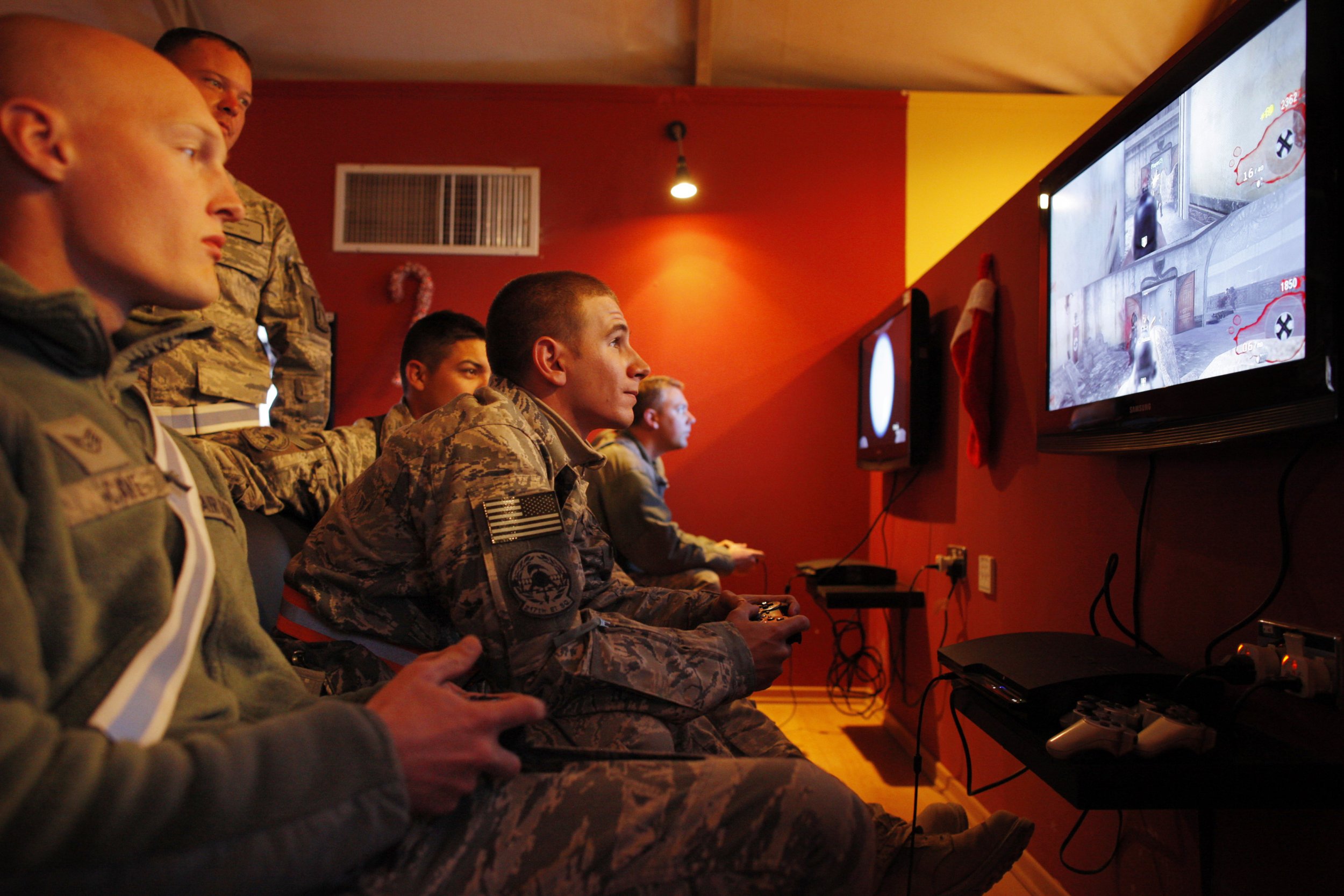
Video games like Call of Duty and Guitar Hero provide entertainment to millions around the world.
But Turkey's Youth and Sports Ministry says that many popular foreign-made games are responsible for intentionally spreading fear and hatred of Islam and Muslims—or Islamophobia—and desecrating Islamic symbols.
The head of the ministry's Education, Culture and Research Commission, Huzeyfe Yilmaz, told the Turkish parliament that some 25 million people play videogames for a total of 39 million hours per day in the country, Turkish paper Hurriyet Daily News reported on Monday.
But Yilmaz said that many games included "harmful material"—such as explicit sexual content or violence—as well as Islamophobic themes and suggested there should be tougher restrictions on selling them in Turkey.
"The goal [of many games] is to give people a negative perception about Islam. Digital games are used as a tool to spread Islamophobia," said Yilmaz, according to Hurriyet. "Often the player is put in the role of a soldier and they gain points by killing Muslims, who are shown to them as terrorists. The main goal is creating enmity towards Islam."
Read more: The video game industry's problem with racial diversity
On the government-run website, 19 games are already listed as containing content that is potentially Islamophobic. Several games in the Call of Duty franchise—which have sold over 250 million copies in total, making it one of the most popular franchises of all time—are blacklisted by the ministry.
The website points out that, in one scenario in Call of Duty: Modern Warfare 2, an Arabic inscription containing hadith—sayings of the Prophet Muhammad—is pictured on a frame hanging above a toilet in a dirty room. The game's developer, Activision, issued an update in 2012 that removed the inscription.
Another game that is listed as offensive is Guitar Hero III: Legends of Rock, in which gamers play along with musical performances. According to the Turkish ministry, the stage features an inscription of the Arabic phrase Allah on which the characters jump and dance. "This horrific act proves that derogatory images towards Islam are embedded in video games on purpose," said the website. Newsweek reached out to Activision, which published the game, but has not received a reply.
Among the other listed games are Resident Evil—where a copy of a book identified by the website as the Quran is left on the floor during a library scene—and Tekken Tag Tournament 2, another popular franchise, which featured the Arabic word "Allah" on the floor in one of the fighting arenas. (The game's developer, Bandai Namco Games, updated the game in 2012 and removed the inscription after an outcry.)
Pac-Man, the world-famous game where the main character consumes tiny dots and is chased by ghosts, was previously listed on the site; the ministry claimed that the game was based on "collecting veiled Muslim women." But the game is no longer visible on the ministry website's homepage.

Yilmaz said that the youth ministry would develop its own games to offer a safe alternative, and that one game it had already put out, called Nusrat, had been downloaded over 2.5 million times.
Experts in the gaming industry have pointed out that Muslims are generally represented in a biased way in Western videogames. A panel at the 2016 Game Developers Conference in San Francisco found that Muslims are often depicted as the villains in modern videogames and the "voices and perspectives of a minority group that consists of more than a billion people around the world is rarely represented," tech news site VentureBeat reported.
Uncommon Knowledge
Newsweek is committed to challenging conventional wisdom and finding connections in the search for common ground.
Newsweek is committed to challenging conventional wisdom and finding connections in the search for common ground.
About the writer
Conor is a staff writer for Newsweek covering Africa, with a focus on Nigeria, security and conflict.
To read how Newsweek uses AI as a newsroom tool, Click here.








